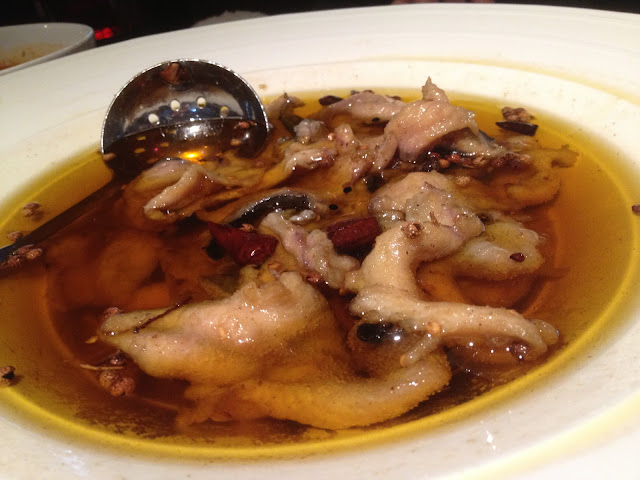Due to its highly political past - think of the 1989 student revolution - there were many state officers and policemen patrolling the square. It was a tense atmosphere and I felt there and then that China was still very much an authoritarian regime. How long will it take for China to wake up to a more liberal society?
I really am not trying to be difficult here, but I've always felt much closer to the Greco-Roman civilisation than my own - namely Chinese. I was still taken by the grandeur of this complex of palaces that was the seat of the Ming and Qing dynasties, but I didn't have the shiver of beholding the Parthenon in Athens or the Forum in Rome. I like to persuade myself that I must have lived in that part of the world in one of my past lives haha! With that in mind, I do think that ancient Chinese cuisine must have been greater than Greco-Roman fare...
After days of feasting, I started to suffer from indigestion. The food I had been having tended to be heavy and oily. One case in point was vegetables. They would use so much oil for stir-frying that the humble greens will arrive at the table shiny and redolent with oil. Thus when I went to a Sichuan restaurant for lunch one day, I asked for them to simply blanch the vegetable in water without adding anything flavouring or oil whatsoever. The waitress was in disbelief.
 |
| A brief moment of repose after days of feasting |
A case in point about the oiliness of things is the famous Sichuan-dish water-boiled fish 水煮魚. Traditionally, the fish slices are briefly boiled a spicy broth, to which chilli oil is splattered on top. I was therefore more than surprised when this rendition arrived at the table - it was pure oil. To be fair, it was pretty tasty, the tender fish slices teemed with the aromas of dried sichuan peppers and chillis. But it was so oily that we were actually given a slice of bread to soak up all the excess grease.
I also had a chance to try the Peking duck at the famed Bian Yi Fang 便宜坊, which was one of the two traditional restaurants (now chains) specialising in Peking duck.While its rival 全聚德 roasted their ducks 'vertically', 便宜坊 roasted their ducks horizontally, much like in a western oven.
I had wanted to visit Da Dong that evening, but this restaurant happened to be closer to a friend who was pregnant, so we settled there instead. I had high hopes for the ducks here, but it was devastatingly disappointingly. The skin was soaked with oil and had no crispiness to it at all. The Peking duck that I had at a local restaurant was incomparably better.
 |
| They look kind of shiny here, but even the upper layer was soaked with oil. Soggy is the only word for it. |
They took the cavity of the bone to the kitchen again and deep-fried it before seasoning it with salt and pepper. Moreish finger food.
I'm really glad to have been able to sample so many local dishes and restaurants in Beijing , thanks to my wonderful friends there. A lot of the dishes were very novel to me even though I'm Chinese myself - a testimony to the diversity and breath of the food of China. I can't help thinking that the food in Beijing isn't what it used to be. I read about Beijing street food at the turn of 20th century and it was (or read) quite spectacular. The same must hold true for Chinese food in general - we must return to the roots of our food and go back to the ingredients themselves. At the moment Chinese food is plagued by 'abnormally'-grown produce (not to say toxic) and artificial flavourings like MSG. So long as China still holds on to these practices, it would be difficult for it to find itself among the world's greatest culinary nations.
The fact that the traditional, the exotic could coexist side by side with the most modern, westernised imports was also revealing to me. I hope that the introduction of western food culture and ideas will serve as a springboard for Chinese people to rediscover the roots of their glorious cuisine.











instagram takipçi satın al
ReplyDeletecasino siteleri
sms onay
günlük kiralık ev
sanal ofis
LXP8
Betturkey giriş adresine buradan ulaşabilirsiniz.
ReplyDeletebetturkey giriş
8RİE
ورنيش
ReplyDeleteورنيش الخشب
Thanks for shareing comments
ReplyDelete